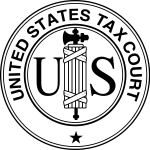 In Buczek v. Commissioner, 143 T.C. 16 (2014), the Tax Court granted the IRS’s motion to dismiss for lack of jurisdiction under IRC § 6330(g) where the taxpayers offered only frivolous arguments as the basis for a Collection Due Process (“CDP”) hearing. Of note, however, is the Court’s refusal to overturn the Tax Court’s decision in Thornberry v. Commissioner, 136 T.C. 356 (2011), which also involved a IRC § 6330(g) determination.
In Buczek v. Commissioner, 143 T.C. 16 (2014), the Tax Court granted the IRS’s motion to dismiss for lack of jurisdiction under IRC § 6330(g) where the taxpayers offered only frivolous arguments as the basis for a Collection Due Process (“CDP”) hearing. Of note, however, is the Court’s refusal to overturn the Tax Court’s decision in Thornberry v. Commissioner, 136 T.C. 356 (2011), which also involved a IRC § 6330(g) determination.
In November 2013, the IRS sent the taxpayers a final notice of intent to levy to collect unpaid Federal income tax and interest assessed for 2009. The taxpayers timely filed Form 12153, Request for a Collection Due Process or Equivalent Hearing, in response. The taxpayers did not check any boxes on the Form 12153 but wrote “common law hearing” on the form where they could state another grounds for requesting a CDP hearing. The taxpayers submitted seven additional pages with the Form 12153, including a copy of the notice of intent to levy stamped with common tax protestor arguments, “Pursuant to UCC 3-501”, “Refused from the cause”, “Consent not given”, and “Permission DENIED”.
The IRS sent the taxpayers a letter in January 2014 requesting that the taxpayers amend their CDP hearing request to provide a legitimate reason for the hearing or to withdraw the request. The taxpayers did not timely respond to this letter. In March 2014, the IRS sent the taxpayers a letter informing the taxpayer that the IRS was disregarding the taxpayers’ CDP request under the authority of IRC § 6330(g).
The taxpayers attached the notice of disregard letter to their Tax Court petition in response to a notice of deficiency for a different tax year. The Court dismissed the case for lack of jurisdiction and ordered the notice of disregard letter be filed as an imperfect petition for the taxpayers’ 2009 tax liability. The taxpayers filed an amended petition in May 2014 pursuant to an order by the Court. The taxpayers’ petition and subsequent pleadings complained about the conduct of an IRS agent, not the appeals officer that sent the notice of disregard letter, and did not raise any “justiciable issue with regard to the Appeals Office’s disregard of his hearing request or its determination to proceed with the collection of his unpaid income tax liability for 2009.”
In June 2014, the IRS filed a motion to dismiss for lack of jurisdiction asserting that the Court does not have jurisdiction when a disregard letter is issued under IRC § 6330(g). The motion to dismiss was contrary to the Court’s decision in Thornberry, which held that while IRC § 6330(g) denies further administrative or judicial review of the portions of a CDP request that the Appeals office deem frivolous, the statute does not deny judicial review of that determination.
Judge Dawson, writing for the court, denied the IRS’s request to overturn Thornberry, distinguishing this case on its facts. Unlike the taxpayers in Thornberry, who presented four valid grounds for a CDP hearing under IRC § 6330(c)(2), here the taxpayers’ CDP request did not make any assertions that would raise a legitimate issue under IRC § 6330(c)(2). The taxpayers did not challenge the appropriateness of the collection action, request collection alternatives, or properly contest the underlying tax liability. Also, unlike Thornberry, where the taxpayers’ CDP request and petition properly raised issues under IRC § 6330(c)(2)(A) and (B), here the taxpayers did not raise any valid issues that could be considered in a CDP hearing.
Judge Dawson granted the IRS’s motion to dismiss for lack of jurisdiction based upon his determination the the taxpayers did not make a proper request for a CDP hearing and thus the CDP request was properly treated as if it was not submitted. However, Judge Dawson clearly states that the Court’s review of IRS determinations under IRC § 6330(g) are important in protecting taxpayers from determinations that are “arbitrary and capricious” and did not overturn Thornberry.
Read the full opinion here: Buczek v. Commissioner, 143 T.C. No. 16 (2014)


